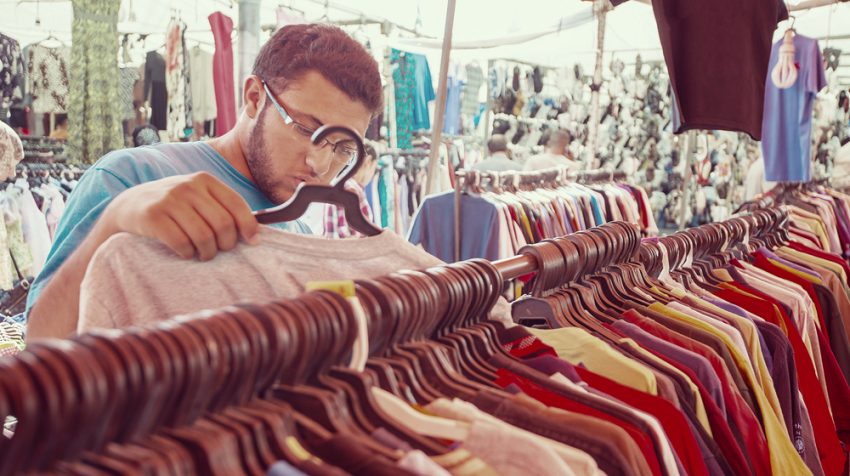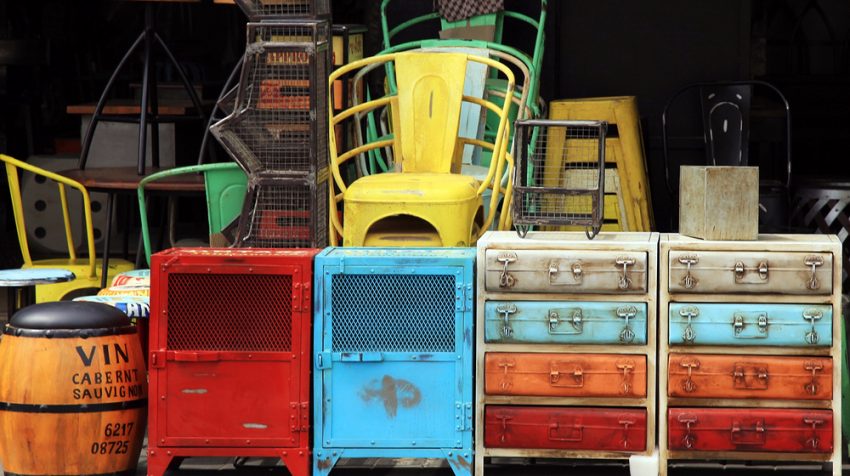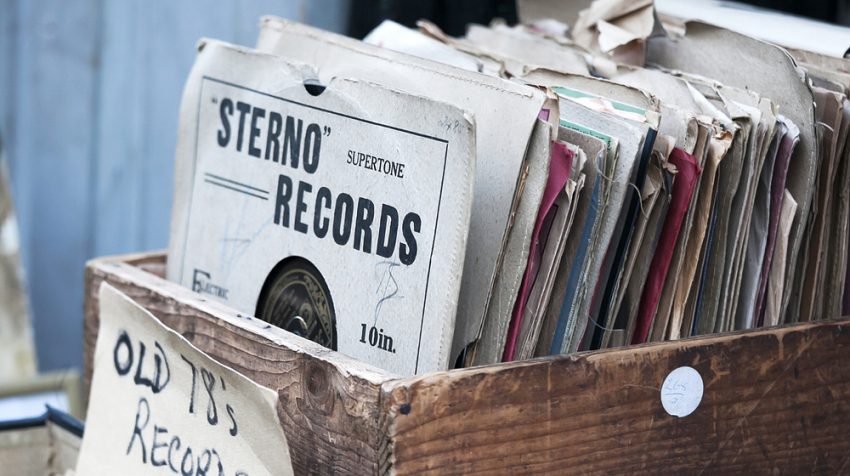A second hand shop is often times one of the more talked about in a community.
For some, it’s a curiosity, an alternative to more traditional retail outlets. In other cases, it could be the local thrift store. But in almost every case, these second hand shops are known as places to get great deals!
And a place like that can quickly leave its mark. Second hand shops of all types often have loyal customers who like to tell their friends about some “secret” store where they’re scoring great products without breaking their budget.
So, opening a second hand shop of some type in your community could be a great business idea. Here are 10 things you should consider wen your launching and then running your business.
Things to Consider When Opening a Second Hand Shop
Choose the Kind of Store You Want to Run
There are second hand shops with a special niche — records shops, bookstores, clothing stores, furniture studios. Then there are second hand stores that will sell just about anything.
You’ll need to figure out what type of second hand business you’re thinking of starting. That decision could be based on a variety of factors, including availability of merchandise, shop location and your overall knowledge of a product. Consider your market, too. A college town, for example, may not be the best location for an antique shop but a used furniture shop or used bookstore could be a big hit.
Have a Plan for Sourcing Your Merchandise
You may be sitting on what you think is a lot of merchandise ripe for a quality second hand shop. And that may be true.
But what happens if you have a mad rush of customers one day and your shelves and racks are left bare? What’s the plan to get more merchandise in a hurry.

Closeouts and liquidation sales may be one source, as are auctions. Check local auction listings. There are events near you for almost every type of merchandise — from restaurant liquidations to wholesale food products to an entire garage of tools — that could fill your shelves quickly.
Be Sure to Get the Proper Business Licenses
When starting any business, especially a local brick-and-mortar operation, it’s critical that you comply with all local laws and acquire all appropriate licenses. If you plan to buy merchandise from private citizens, it’s also important to ensure all procedures are in place to prevent buying stolen goods and that you work with authorities if hot merchandise does come through your doors.
Hire a Mr. or Mrs. Fix-It
If you’re running a second hand furniture or appliance shop, there may come a time when you buy something — with the intent of selling it — that needs a little work. You’ll be far too consumed with running other aspects of your business to have the time to devote to handiwork.

Find a few reliable people locally who can do repairs at a negotiable cost and help you out on an on-call basis. This could include people with sewing skills or electrical skills or even someone as specific as an air conditioner repairman.
Run It Like a Modern Business
Just because a lot of your merchandise is second hand doesn’t mean your operation should be second rate. Your customers will expect you to effectively use technology and create a positive shopping experience. Consider a point-of-sale system that has some portability. Adopt a customer loyalty program that’s easy to track. Keep a clean, well-lit location.
Don’t Be a Square, Keep Up with Trends
You may assume running a second hand store means accepting just about anything people bring in for resale or anything you can buy at an auction. Well, you’d be wrong. Not all second hand merchandise is created equally. So take a good long look at which of your products seem to sell best with your customers. Stay up on the latest trends. Mix the old with the new and give your customers a truly unique experience.
Forget Firm Pricing and Learn to Negotiate
Few, if any, second hand shops have firm prices on their merchandise. And your goal running a second hand shop should be to move merchandise in an effort to bring in new stuff as quickly as possible. To do this, you’re going to have to learn how to make deals that keep you in the black and let your customers feel like they’re getting a good deal.
Being able to satisfy customers in this fashion can really go a long way in building a loyal customer base.
No Matter What Your Niche, Diversify Your Stock
It’s great if you want to stick to a niche market but there’s nothing wrong with drawing in as many potential customers as you can. Using the record store as an example again … your shelves should be lined with vintage vinyl but to make the shop inviting to more people, consider adding products for people without a turntable but are related to your specialty.
Also, listen to your customers. If they’re asking you for certain kinds of products, do your best to get them in as soon as possible. Again, this is another way of developing loyal customers.
Promote Where Your Customers Are
Second hand stores have vibrant social media followings and you should work toward getting your posts — on Facebook and similar social media — out to as many people as possible. Using each network’s best practices for promoting a business, let customers know about new products you just got in. Run special promotions for your followers too.
Remember, Second Hand Needn’t Be Second Rate
In some places, there’s a stigma that follows second hand stores of any kind. Of course, as noted earlier, these are the same stores that are often beloved — when they’re good — in the community. So be sure to connect with the community in which you operate early and often.
Work hard to get a feel for exactly what your community needs and the kind of experience customers are expecting.
Then do whatever it takes to fill those needs and create that experience.
Don’t wall yourself off from the rest of the community. Become part of it, instead.
What qualities about your favorite local second hand shop do you appreciate the most? What keeps you going back and what drew you there in the first place. Leave your answers in the comments below.
Vinyl Photo via Shutterstock, Clothing Shopper Photo via Shutterstock, Repurposed Furniture Photo via Shutterstock









Aira Bongco
This is a good concept. I think that there is a good number of people who like to buy second hand items as long as it is cheaper than the price of a brand new item. Really interesting business concept.
Creating a traditional second hand shop doesn’t mean that you should give up technology. It is important that this should happen.
Choose your items well. It still has to be top quality. Secondhand doesn’t mean lower in quality. It must still almost feel like brand new.
You made an excellent point when you mentioned that second hand need not be second rate. I believe that quality should never be compromised regardless whether the item is brand new or not. If I were to open my own shop, I would definitely abide by this principle. Thanks.
Julia Young
I work full time in a small local thrift store that raises money to provide youths in our community scholarships towards their secondary education. One thing that helps us make a good money day is to have random sales. it may be 50% off of clothes, or 50% off shoes, or jewellery , It attracts customers like flies. we treat our customers with a great deal of respect and are flexible on prices.
Alan Hardcastle
I’ve been a secondhand and antiques dealer for 35 years, and totally commend the advice given here. All the points made are valid, and I recommend anybody thinking of doing this follows the advice give. Excellent site.
Hayoung chun
Hi,
I’m working on an online & offline secondhand clothing shop to sell vintage and modern clothing for sustainability. I’m looking for advice on how to operate own secondhand clothing store and what kind of license to get, and how to stock the inventories.
Rhoden
Thanks for a great site, very good advise.
How would i go about pricing different second hand goods?
Is there a certain way how to determine the value of it?
Thanking you in advance.
Kamal badru
Z here I started in 2014. Now I run two successful stores.
When it comes to pricing items I usually consider two aspects
Donated items and the items I buy, ie in auctions
Free stuff I use mostly for SALE days. And are usually cheaper
And bought items mostly furniture i add 40% markup.
Thanks for all your efforts. I was able to find good information from your articles.
Thanks for your struggle. With your help, I get good information.
The 2nd hand shops are very reliable and ready to make shops. You can advertise the Pakistan real estate advertising platform where you can sell you shop or rent them in very reasonable prices.
Thanks for your struggle. With your help, I get amazing information.
Nice Article.
thank u
thank u.
Muqeet
This is a good concept.. good article
nice article keep posting